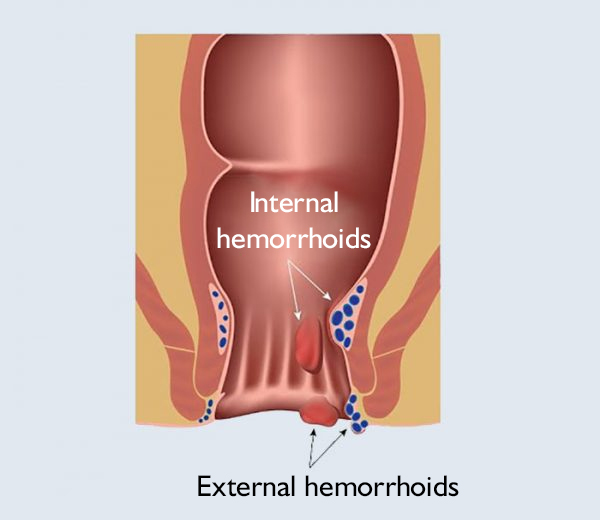Hemorrhoids are swollen veins in the lower rectum and anus. Mostly malnutrition, lack of physical activity, obesity, and struggling as a result of constipation can cause hemorrhoids. In some cases they may become inflammatory, enlarged, bloody, and turned out, causing pain and further complaints. Severe hemorrhoids lead to further complaints and complications without proper treatment (hemorrhoid surgery).
Internal hemorrhoids are painless, but tend to bleed. External hemorrhoids can cause pain.



